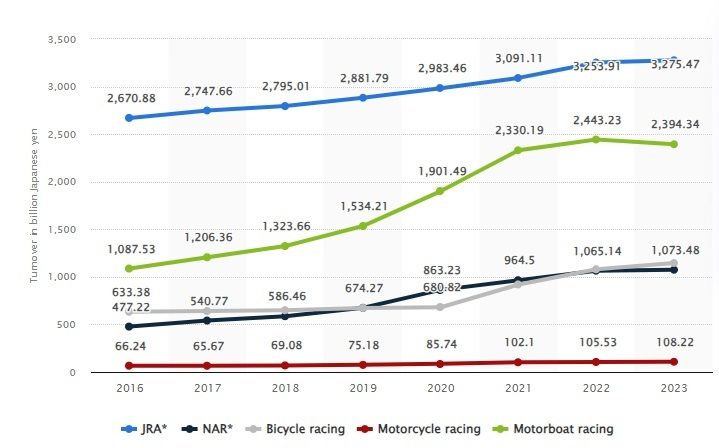In Japan, most forms of online gambling are prohibited. The Penal Code explicitly criminalizes unauthorized gambling activities, and local companies are barred from operating online casinos or betting platforms. However, this rule has a few notable exceptions, mainly focusing on state-sanctioned betting activities.
Sports betting is only partially legal in Japan. Currently, individuals can legally bet on certain domestic sports, specifically:
- Horse racing
- Powerboat racing
- Motorcycle racing
- Bicycle racing
- Some football leagues (via the Toto system)
But here’s the kicker: foreign online platforms, like Mybet Japan online casino, often swoop in to fill the gap left by Japan’s legal prohibitions. These platforms cater to Japanese bettors, functioning in what many refer to as a "legal grey area." Essentially, while it's not legal for Japanese companies to run online sports betting operations, there's a loophole for players who engage with offshore services.
Cultural Attitudes of Gamling in Japan
When it comes to gambling, Japan treads carefully. The country has long-standing cultural reservations about it, which stem from concerns about addiction, social harm, and ties to organized crime, notably the yakuza. These concerns have undoubtedly influenced the stringent policies surrounding gambling in Japan.
Public opinion on gambling is a mixed bag. On one hand, gambling carries a certain social stigma, often seen as a vice that leads to personal and societal problems. On the other hand, there is undeniable excitement surrounding legal forms of betting, such as pachinko (a popular mechanical game that skirts gambling laws) and state-approved races.
Market Size and Growt - Betting Big Despite the Barriers
source: statista.com
Despite these restrictions, Japan’s gambling market is far from small. In fact, in 2022, it was valued at approximately $7.2 billion, and projections suggest that this figure will only grow. According to research, approximately 9% of the Japanese population engaged in sports betting within the past year, with many preferring online platforms for their bets
Online gambling, while operating on the fringes of legality, plays a significant role in this market. Japan has been dubbed an "illegal casino superpower"—a testament to the volume of betting that occurs on foreign sites. Part of what fuels this is the affiliate marketing network that directs Japanese players to these offshore platforms. It’s a bustling underground economy, driven by poor law enforcement and high demand from bettors.
The Future of Gambling in Japan
As Japan’s gambling landscape evolves, several trends and developments point toward potential changes in the industry. One significant shift is the possible legalization of more forms of online gambling, beyond the current limits of horse racing and lotteries. There is growing pressure to expand these regulations, particularly as the online gambling market is projected to reach $7.53 billion by 2027, with over 11 million players expected.
Another major development is the emergence of land-based casinos, with the first integrated resorts slated to open by 2029. These casinos aim to boost tourism and the economy, offering regulated environments for gambling. However, as the industry grows, increased regulation is anticipated to combat illegal betting and address addiction concerns.
Technology is also shaping the future of gambling in Japan. The rise of mobile betting apps and digital platforms has made gambling more accessible, particularly for younger generations. Additionally, emerging trends like eSports betting, blockchain-based transactions, and virtual reality (VR) are expected to enhance the gambling experience.
Despite these promising developments, cultural resistance to gambling remains strong in Japan, driven by concerns about addiction and societal harm. Moreover, regulatory hurdles and competition from offshore operators pose challenges, but also opportunities for Japan to create a more competitive and legal gambling market. If managed properly, these shifts could bring significant economic benefits, including increased tax revenue and job creation.

 EN
EN  čeština
čeština  Polski
Polski  Slovenčina
Slovenčina  Русский
Русский  Deutsch
Deutsch  Slovenski
Slovenski  Dutch
Dutch  Svenska
Svenska  Português
Português  Italiano
Italiano  Español
Español  Français
Français  Suomalainen
Suomalainen  Български
Български  Românesc
Românesc  Magyar
Magyar  Eesti
Eesti  Ελληνική
Ελληνική  Latviešu
Latviešu  Lietuvių
Lietuvių  やまと
やまと  中国
中国  Dansk
Dansk  Türkçe
Türkçe  ID
ID  Українська
Українська  한국어
한국어  Norsk
Norsk  Peter Sommer
Peter Sommer 








You have to be logged in to add a comment